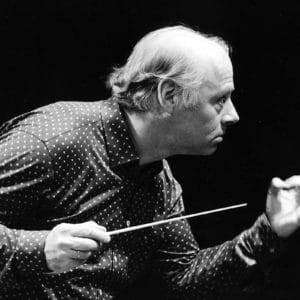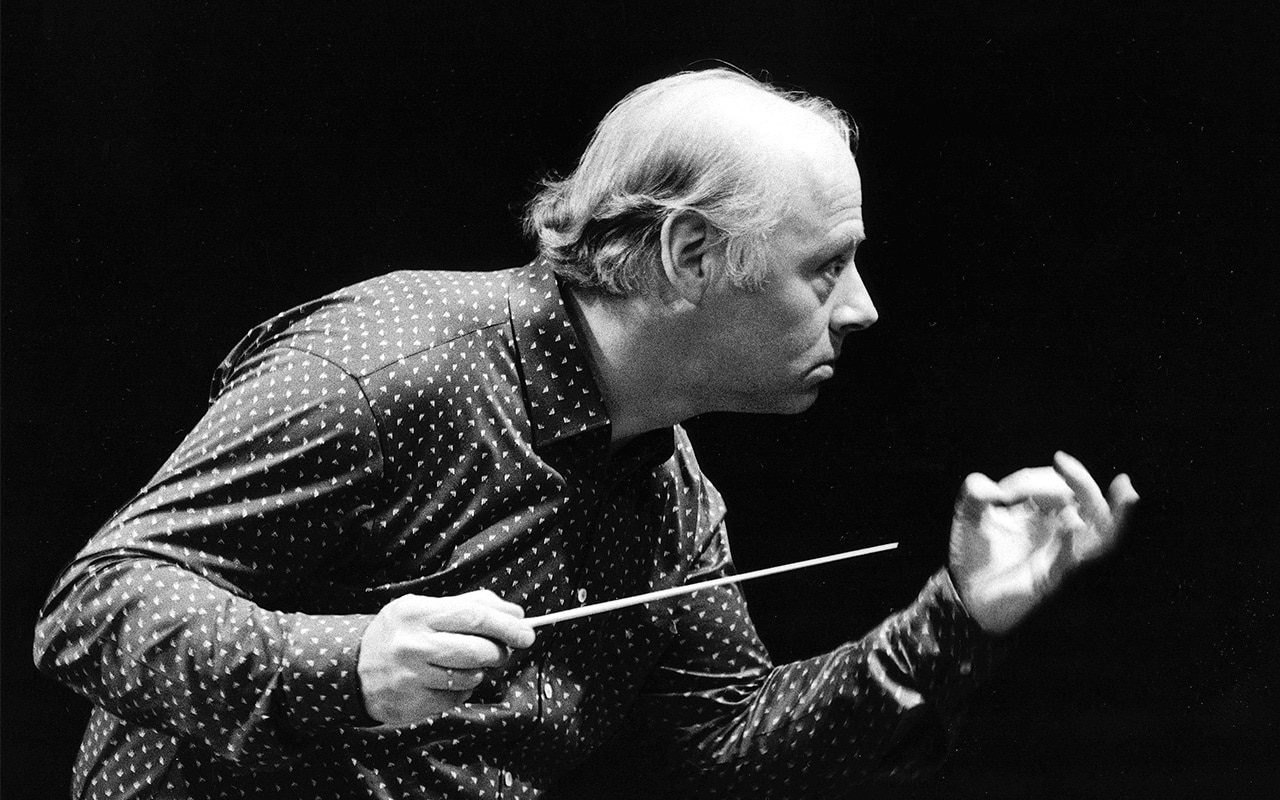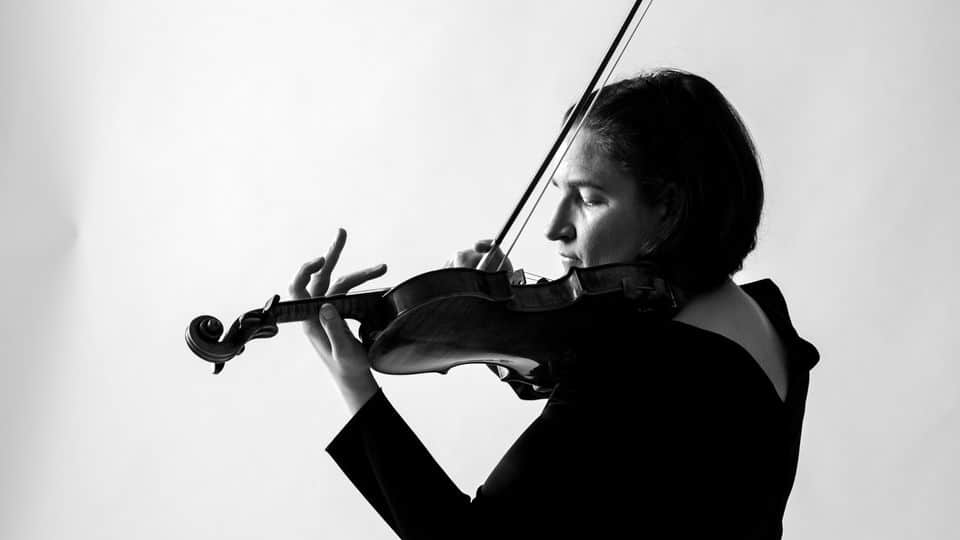Simon Rattle: Watching Carlos Kleiber with Bernard Haitink
NewsThe LSO music director has shared this treasured memory of the late Bernard Haitink with Slippedisc.com:
Bernard invited me to sit in the conductor’s box just over the Covent Garden pit to watch Carlos Kleiber conduct Otello. At one point in the first act he leant over to me and, pointing at Kleiber, said “I don’t know about you, but my studies are just beginning!”
Sums him up in a nutshell…..
Simon has added another story on the LSO website:<
… we first met in Glyndebourne In 1975 where I was a Pianist for the legendary Hockney/ John Cox production of the Rake’s Progress. Bernard taught me an indelible lesson there: the piano score is famously tricky to play, but if he was on the rostrum I found I could play it all without faking or missing out handfuls of notes. It must have been something to do with the space he imparted, the how and why remains a mystery, but it was abundantly clear that I could not play it in the same way if he was not conducting. Although I had witnessed great conductors previously, this was my first direct experience of the immense difference that one person’s presence could make. It is a microcosm of all I saw him do throughout his career. Without fuss, and utterly without drawing attention to himself, he created a place where everyone could give their best and normal problems of ensemble or balance simply vanished. It became almost a commonplace to think “if we can’t play well under Bernard, it’s time to take up another profession.”

photo: Warner Classics






Interesting comment. There is a tendency to rush difficult passages because one gets tense about it, so if you’re able to simply relax, mindful not to speed up, it’s amazing how much easier such moments become.
http://azuremilesrecords.com/divineinfluenceanindochatterjee.html
I don’t believe that anyone, including Sir. S, can “play it all” (the piano score of the Rake)…
I read somewhere that he wouldn’t conduct Otello because Kleiber had done it so well.
His modesty illustrates his greatness, really great performers don’t feel the need to pump-up their stature since they think it’s obvious and in the end, only an instrument for the music.
But not everybody in music life found him great. Many found him dull, that is: balancing his interpretations into smooth soundscapes – except in Mahler and Bruckner. I think he was a classicist, wanting to let the music speak for itself as much as possible. I don’t think it was dull, in such cases it was rather an ‘inspired respectability’. That is why he was particularly popular in England.
I think I will go with the insights from Simon Rattle and the musicians that actually made music with him.
Yes, good idea, but don’t forget what kind of conductor Sir Rattle is.
John, your comment only serves to illustrate your ignorance on matters musical and pertaining to British character. You could do with a primer on both.
Agreed! What does he know about these things?! I know far more of British life, having suffered by its hands, so to speak.
Sally
he certainly wasn’t without fire though. His recording of Vermeullon’s 7th Symphony is a case in point. Not the kind of repertoire he became linked with.
I wonder if “respectability” is exactly the word you’re looking for. It matters, because your phrase points to an important idea.
As a school student I used to try to go to orchestra dress rehearsals because after the cost of the train to London, I couldn’t afford a concert ticket too. Some orchestras wouldn’t allow it unless you had also bought a ticket. I wrote to Haitink to explain and he said that, of course, I would need a pass from the LPO to attend his rehearsals but if I showed them his letter he hoped it wouldn’t be a problem for me! He was the last of the great conductors I grew up watching and enjoying, one who only got better as he matured.
I’m happy I attended that same run of Otello at the ROH. CK was, indeed, rather magnificent. As for operatic piano reductions, they’re not designed to be played verbatim, you have to exercise discretion and a feeling for what’s most important for the singers at any given point. If that means leaving out fistfuls of notes so that poor tenor hanging from one leg at the back of the stage hears his bell tone, then so be it. These things aren’t piano recitals and the arranger’s invariably well-intentioned work needs re-appraising with the stage environment every time the piece is put up. Don’t forget that the piano ‘part’, however brilliantly executed and differentiated, can never compete with the palette of colours an orchestra can offer you, so important themes and gestures need musical space to be highlighted and thus be useful for the singers, who remain on stage once the orchestra arrives and need their points of reference. Less is often more, but the repetiteur needs to know how to maintain the ambiant feel of a passage while ensuring everyone on stage can recognise what they need.
Having said that, SR is right when he implies that some conductors make it easier for people to play. I worked with someone in London years ago about whom certain colleagues said ‘he conducts out of tune’. After a couple of performances I understood what they meant: they were incapable of giving their best under his baton. Intonation and rhythm often suffered, problems which disappeared when he was not on the podium.
Integrity
I was in Glyndebourne chorus and we had done perhaps 15 ‘Hockey produced’Flutes under s famous conductor.Haitinks turn.Short “meeting”Rehearsal is wrong word.Haitink ‘We need to know each other a little”
He smiled,raised his arms,closed his eyes.Waited.
We were then together as never before and dare I say … with Mozart.